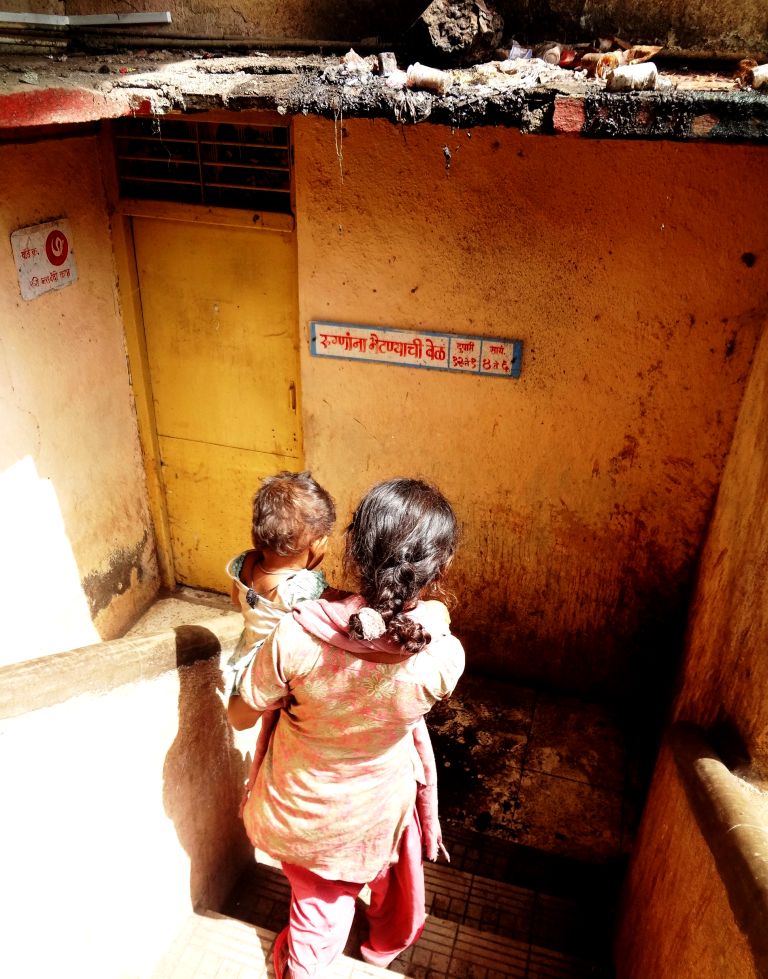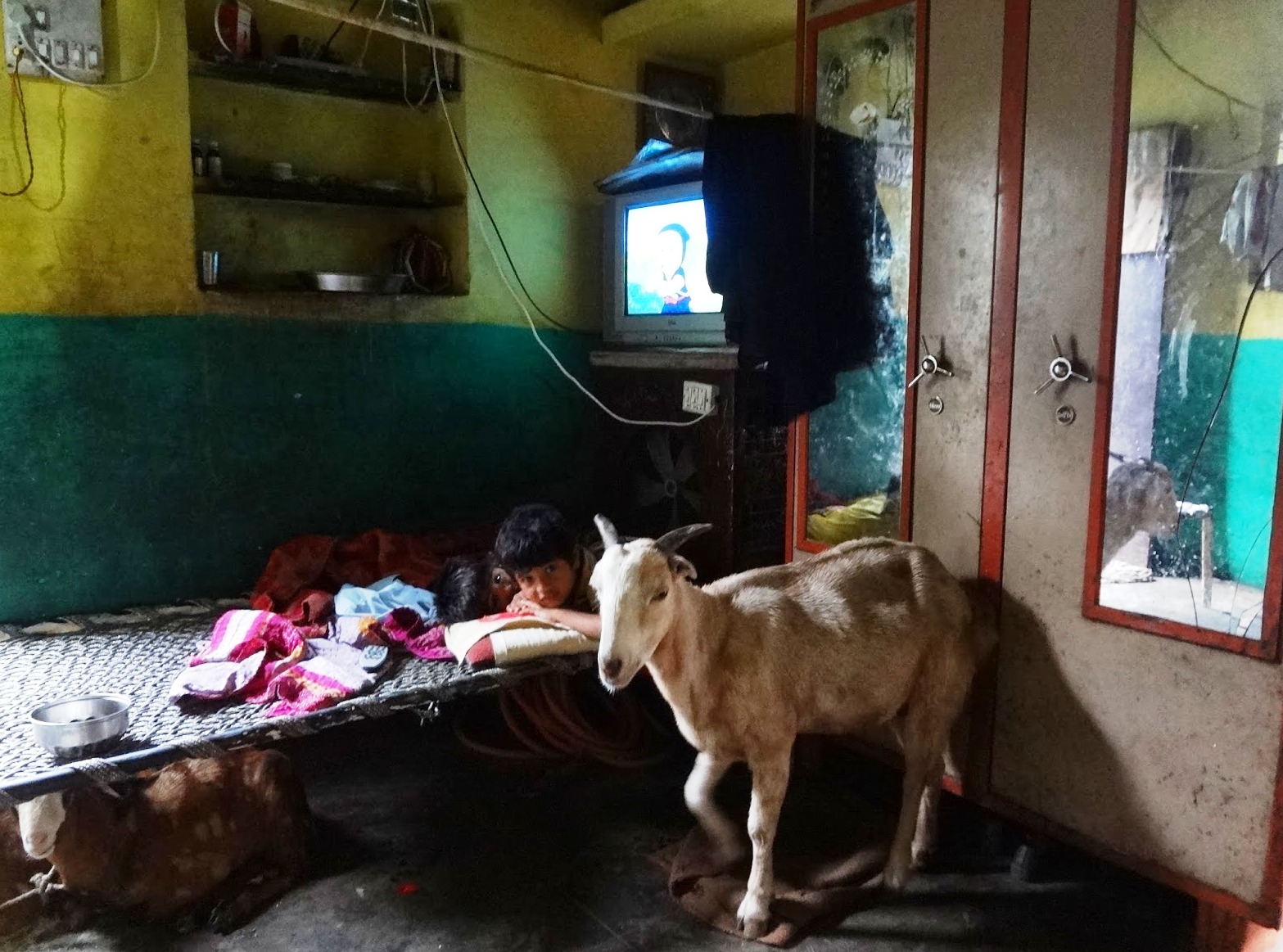Neha Rathi recounts her experience of meeting two women while researching on unsafe abortion in rural Maharashtra
Located on National Highway 6, Nashirabad is a small town about 10 km from Jalgaon district in Maharashtra that has many warehouses along the highway and is frequented by truck drivers. It also has a Primary Health Centre that provides for basic treatment. I had come to Nashirabad to speak to Fatima, an HIV positive woman or PLHA (an acronym for People Living with HIV/AIDS), who had recently had an unsafe abortion. The research was part of a larger study on barriers to safe abortion that I had been working on and Fatima’s was the only case story that touched upon both unsafe abortion and HIV stigma.
Fatima was walking back home when I approached her on the street leading to her house. The presence of Madhu, who was helping me as a translator worked in our favour, and Fatima agreed to speak. She guided me through the narrow lanes as I followed her, unmindful of the curiosity I might have evoked among the neighbours. The wet and uneven lanes made it slippery work to catch up, but I tried to move fast on my feet lest I lose her trail.
Soon she turned left and I saw her enter a small shanty. By the time I had approached her house and was wondering if taking off my sandal was obligatory, she had already picked up a jhaadoo (broom) and was sweeping the floor. The room had one charpai (folding bed) and one almirah (cupboard). Beneath the charpai sat two goats chewing cud and another stood near by. The goats looked quite at home and seemed unperturbed by my presence. Right above the goats on the charpai lay two young boys, glued to the television, and three younger ones rolled about and played on the floor, dabbling with knickknacks strewn on the uneven ground.
Fatima was still sweeping with the jhaadoo when we started talking. Now I knew what the hurry was about – there were goat droppings in the house. Unlike cow’s gobar, which is pie-shaped dung, goat feces resembles small, round, black balls. The floor was full of these droppings, but there was no stench in the air. Having cleared the floor, she offered me a rickety chair to sit on. One more chair was brought in for Madhu and though I did not require her to translate this interview, she was invited to sit through it.
——
27 years old Fatima was married at the age of 14 and has five sons. At the time of her fifth pregnancy she came to know that she was HIV positive. She had acquired the virus through her husband who works as a taxi driver in Mumbai, and visits her every few months. It was no surprise to her that he was infected and nothing much had changed since she came to know that she had been infected too. “He got us these goats so the children can have milk,” she says. Fortunately, none of her children had acquired the virus and were all HIV negative.
Fatima does not want any more children because of her HIV status. She already has five sons and was having a tough time supporting them because of her meager income. “Zyada bache ho gaye. Paanch ladke. Kharcha itna hai abhi gareebi hai apni halat kharab hai. iske liye nahi rakhe aur bachhe,” [I already have many kids, we are poor people and are able to barely make ends meet, that is why decided not to have more children.] She has been told by her husband that he uses a condom, but she is not sure if he does actually use it. Once when she asked him, he had said he would not use it. “Wo bole main nahi use kar raha to apun kya bolenge, majburi hai uske hisab se apun chup baithe.” [He said he wouldn’t use it. What can I say, that is why I don’t say anything.]
Like most women in her neighbourhood, Fatima never had the decision-making power when it came to her reproductive choices and a year after the birth of her last child she was pregnant again. She wanted an abortion, but her husband was not in favour of it. He also forbade her to take abortion pills, as he considered them unsafe and unreliable. After much insistence on her part, he let her go to a nearby health post for curettage, an outdated method of abortion involving the removal of foetus using a curette, a small surgical instrument used for a scraping action, especially from the uterus. But she grew cold feet at the last moment because no one knew of her HIV status and she did not want to disclose it. Anxious to obtain an abortion and reluctant to go to the public health post, Fatima resorted to eating raw papaya, which is considered to be a natural abortificient. An abortion, however, was not induced.
Reluctant and afraid of revealing her HIV status, she again visited the public health center, where she was informed that abortions no longer took place and could only be provided if she agreed to a sterilization operation. “Unhone mana kar diye the. Unhone kaha ki operation (sterilization) karana hi padega tumko. Agar tum operation (sterilization) karwate ho toh hi doctor sahab abortion karenge,” she said. [“At first they told me that curetting does not take place anymore. Later, they said that they would provide abortion only if I was ready for a sterilization operation right after the abortion.”]
Fatima might have agreed to the sterilization operation but she had no one at home who could look after her five small children while she would be admitted during the abortion procedure. “This left me with no choice,” she says, “I have five small children. The hospital required me to get admitted. How could I leave my little children alone at home? There was no one to take care of them. Their father also does not live with us.”
Finally, with little time in hand, it already being nearly 8 weeks of pregnancy, she rushed to a local Muslim doctor in her mohalla and obtained off-label (unapproved) abortion pills from him. “In desperation, I got some pills in secrecy from a doctor from our community who lives nearby. He strictly instructed me to remain silent about the pills,” she reveals. Fatima has no idea what the pills were, as they were given to her without any packaging and were sold clandestinely. She took the pills as prescribed to her and decided not to tell her husband about them.
Within a matter of hours, Fatima started to bleed and the weakness caused her to faint and consequently slip in the community toilet used by residents of her locality. Her neighbours, unaware of her pregnancy or her HIV status, brought her to her house and advised her to rest. No doctor was called for. Unsure about whether the abortion took place or not, she guesses that abortion must have taken place causing her to bleed and faint.
Now that a couple of months have passed and she is back to doing her chores, Fatima is contemplating getting a Copper-T inserted. Once again she is afraid of revealing her HIV status at the maternity centre. Barely twenty-seven, she has five kids to look after – all boys, all HIV negative, with a future to look forward to. Every six months Fatima undergoes a blood test at a public hospital, but so far has not been prescribed any medication or counselling. “Abhi time nahi aaya hai davai lene ka, doctor bole,” she says. [“The doctors have told me that I do not need to take medicines yet.”]
……..….
As we continued to talk, her bhaijaan (brother) walked in. She lead me to an inner room and coyly asked me not to talk about her ‘illness’ in front of him, as no one in the family knew about it. I reassured her and we finished the interview on her makeshift bed, with the goat taking an interest in my handbag now and then. Having finished taking notes, I packed my recorder, put all my stuff in my bag, thanked her for her time, and started for the cab that had been waiting at the end of the narrow gali on which I had earlier trudged.
While walking back I realised that none of the women I had interviewed so far had as much life about them as she did. She was only one who had cracked jokes as I asked about her ordeal. She had an incredible smile on her face all throughout, a shyness that is impossible to put down in words, but stays long after one has witnessed it.
——————-
On the way to my lodge in Amalner, which was a good 150 km away, Madhu, my companion and translator, shared other stories about women with HIV with me, and invited me to visit her and see how they have been working with kids with HIV. I was keen to know more and asked her about her work. We spent the entire journey discussing issues related to HIV status, counselling, NACO, and children with HIV. We also talked of confidentiality and the attitude of families of HIV positive people, and the like. Madhu informed me of how living with HIV was easier than living with diabetes, and yet the stigma of the former was a hundred-fold. We both wondered about how a couple retains their marital and physical relationship after they know that one contracted it through the other. We talked of emotional setbacks, the importance of counselling, and suicidal tendencies. She pointed out that the increasing number of brothels in the area, the rising clientele of truck drivers, and safety and counselling for the sex workers were all issues of concern. Later, as we stopped by for our evening tea at a dhaba (food stall) on the highway, we talked about her husband and her son, and her passion for her work. We talked, had lunch and finally parted at a big junction from where she said her house was at a walking distance. I liked her already and made a mental note to meet her again during the course of my research.
With the day’s experience on my mind, I finally reached my lodge. Another round of interviews had been arranged for the next day. This time at the Civil Hospital in Dhule District, some 50 kilometers away. On the way to the hospital the next morning, I happened to mention the Nashirabad interview to my resource person at Amalner, who also heads the NGO that was assisting me in my research. I told her about my visit to Nashirabad and about my stirring interaction with Madhu, who was an employee with them. I wanted to know more about the situation in Jalgaon. It was then that she mentioned something about Madhu. She asked me, “Didn’t you know she also has it?”
“Has what?” I asked. “HIV,” she said.
Embarrassed, I managed a “No.”
Later I came to know that Madhu had been married off at an early age and had been infected through her husband, who died soon after. She married again, and now has a partner who is also a PLHA. They have a child together. The child is HIV negative. I had spent an entire day listening to her about PLHA women, interviewing and discussing how life with HIV is like, and how stigma can make it worse. All this while she herself was perhaps holding back from telling me her own story.
(Note : Names have been changed to protect identity.)
(Neha Rathi practices law at the Supreme Court. This article is based on her research on unsafe abortions funded by Save the Children and NFI’s Child Survival Fellowship. She can be reached at neha305@gmail.com)























